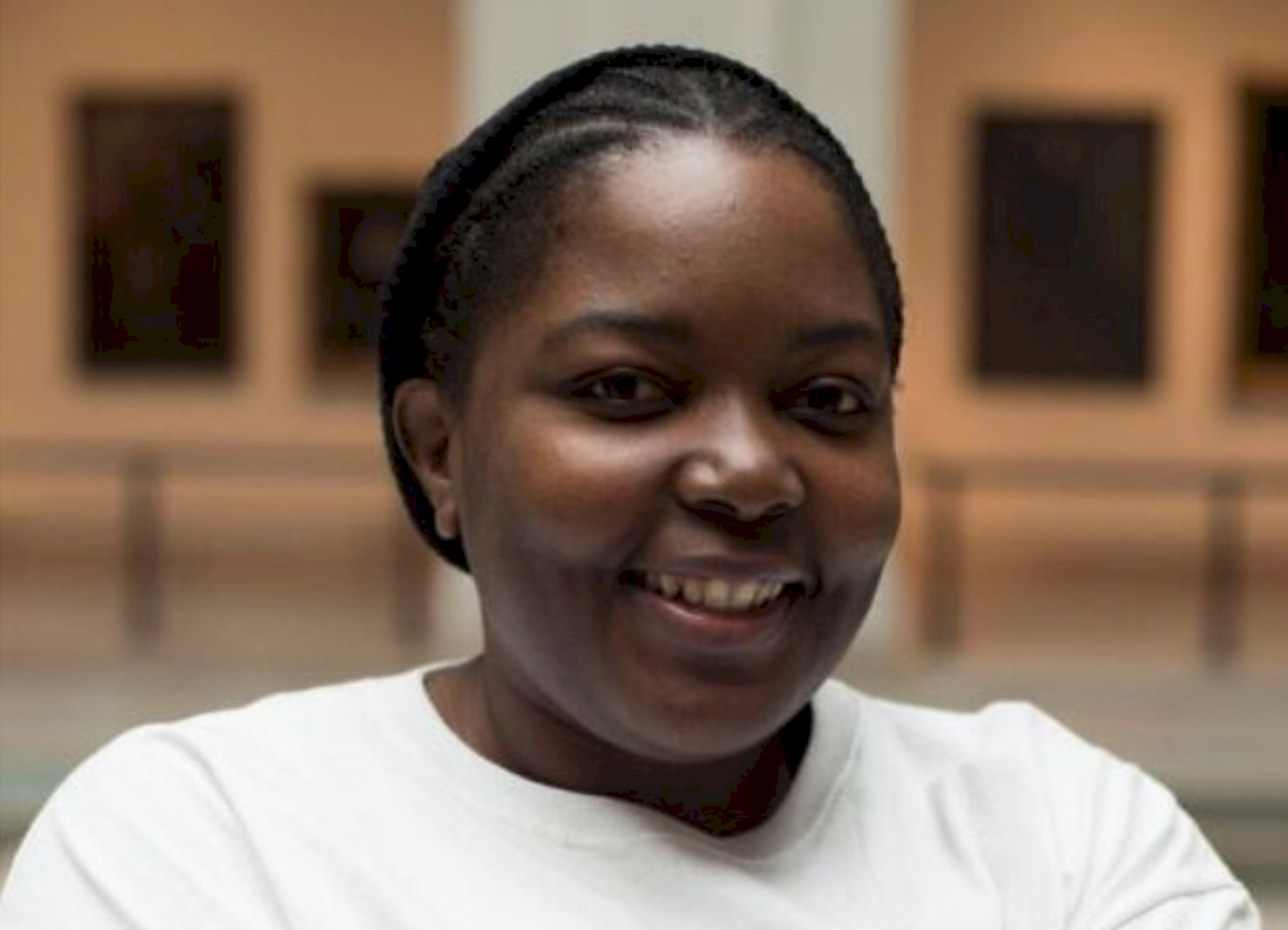The Blackest Person In The World: A Journey Beyond Color
Imagine this: You're scrolling through the internet, and suddenly you come across a question that piques your curiosity. Who is the blackest person in the world? It’s not just about skin tone—it’s a cultural, historical, and even scientific exploration. This article dives deep into the topic, uncovering fascinating facts, debunking myths, and shedding light on the people behind the headlines.
Now, when we talk about "the blackest person in the world," it's important to understand that we're not just talking about melanin levels or pigmentation. This phrase carries weight, history, and meaning that goes far beyond what meets the eye. It's a conversation starter, a chance to explore identity, representation, and diversity in ways that resonate with everyone.
So, buckle up, because we're about to embark on a journey that will take us from the science of melanin to the cultural significance of being "black." Whether you're here out of curiosity or because you want to learn more about the human experience, you're in the right place. Let's get started!
- Blake Lively Height The Real Story Behind Her Iconic Height
- Crazyjamjam Leaked Fanfic The Ultimate Fan Guide You Need To Read
Daftar Isi
Background: Understanding the Question
- Barry Keoghan Ethnicity Unpacking The Roots Of A Rising Star
- Naked Brooke Monk The Truth Behind The Viral Sensation
Cultural Significance of "Blackness"
Celebrities Often Referred to as "The Blackest"
Biography: A Closer Look at Melanin-Rich Individuals
Global Impact of Dark Skin Representation
Society's Role in Defining "Blackness"
Conclusion: Celebrating Diversity
Background: Understanding the Question
Let’s face it, the phrase "the blackest person in the world" can be a little confusing. Are we talking about the darkest skin tone? Or are we referring to someone who embodies the essence of black culture, heritage, and identity? It’s a question that has sparked debates, inspired art, and fueled conversations around the globe.
For some, it’s a scientific inquiry about melanin production. For others, it’s a cultural exploration of what it means to be black in a world that often reduces identity to skin color. This section will break down the context, helping you understand why this question matters and why it deserves a thoughtful answer.
Think about it this way: If you were asked to describe yourself in one word, would "black" be enough? Probably not, right? That’s because identity is complex, layered, and deeply personal. And that’s exactly what makes this topic so fascinating.
The Science Behind Melanin
Now, let’s dive into the science of it all. Melanin is the pigment that gives color to our skin, hair, and eyes. But did you know that there are different types of melanin? Eumelanin, which is responsible for dark brown or black pigmentation, plays a significant role in determining skin tone.
People with higher levels of eumelanin tend to have darker skin, which provides natural protection against UV radiation. This is why individuals from regions closer to the equator often have darker skin tones—it’s an evolutionary adaptation to protect against harmful sun exposure.
So, scientifically speaking, the "blackest person in the world" could be someone with the highest concentration of eumelanin. But measuring this isn’t as simple as it sounds. Factors like genetics, environment, and even lifestyle can influence melanin production.
Fun Facts About Melanin
- Melanin protects the skin from UV damage by absorbing sunlight.
- People with darker skin are less likely to experience sunburn.
- Melanin production can increase in response to sun exposure, leading to tanning.
A Historical Perspective
History plays a crucial role in shaping our understanding of "blackness." From ancient civilizations to modern times, dark-skinned individuals have been celebrated, marginalized, and everything in between. In many African cultures, dark skin was seen as a symbol of beauty, strength, and resilience.
However, the transatlantic slave trade and colonialism introduced harmful stereotypes that equated dark skin with inferiority. These narratives have persisted for centuries, influencing how people perceive themselves and others based on skin color.
Today, the conversation around "the blackest person in the world" is part of a broader movement to reclaim and celebrate black identity. It’s about challenging outdated notions and embracing the richness of diversity.
Cultural Significance of "Blackness"
When we talk about the cultural significance of "blackness," we’re talking about more than just skin color. It’s about heritage, traditions, and the contributions of black people to art, music, literature, and beyond. From jazz to hip-hop, from literature to film, black culture has left an indelible mark on the world.
For many, being "black" is about community, resilience, and pride. It’s about standing up against injustice and celebrating the beauty of diversity. And while the phrase "the blackest person in the world" might seem like a playful question, it touches on deeper issues of representation and identity.
Think about the impact of seeing someone who looks like you in positions of power, on the big screen, or in the pages of a book. Representation matters, and it’s a reminder that diversity enriches us all.
Celebrities Often Referred to as "The Blackest"
When it comes to celebrities, certain names often come up in discussions about "the blackest person in the world." Think about individuals like Viola Davis, Lupita Nyong’o, or Naomi Campbell. These women have not only embraced their dark skin but have also used their platforms to advocate for change and celebrate black beauty.
But it’s not just about Hollywood. Musicians like Beyoncé, actors like Idris Elba, and activists like Angela Davis have all contributed to the conversation around black identity in meaningful ways. They remind us that being "black" isn’t just about appearance—it’s about what you stand for and how you represent your community.
Who Inspires You?
- Viola Davis: Known for her powerful performances and advocacy for diversity in Hollywood.
- Lupita Nyong’o: A celebrated actress and role model for young women around the globe.
- Beyoncé: A cultural icon who consistently pushes boundaries and celebrates black excellence.
Biography: A Closer Look at Melanin-Rich Individuals
Let’s take a closer look at some individuals who have been referred to as "the blackest person in the world." These aren’t just random names—they’re people who have made significant contributions to society and have become symbols of black pride.
| Name | Occupation | Notable Achievements |
|---|---|---|
| Viola Davis | Actress | First black woman to win an Emmy, Grammy, and Oscar. |
| Lupita Nyong’o | Actress | Academy Award winner for her role in "12 Years a Slave." |
| Naomi Campbell | Supermodel | One of the first black models to achieve global fame. |
These individuals aren’t just celebrated for their dark skin—they’re celebrated for their talent, resilience, and ability to break barriers. They remind us that being "black" is about more than just appearance—it’s about the impact you have on the world.
Common Misconceptions
There are plenty of misconceptions surrounding the phrase "the blackest person in the world." Some people assume it’s purely about skin tone, while others think it’s a derogatory term. The truth is, it’s a complex topic that requires nuance and understanding.
One common misconception is that darker skin automatically equates to "blackness." While skin tone is certainly a factor, identity is much more than that. It’s about culture, experiences, and the way you choose to express yourself.
Another misconception is that being "black" is a monolithic experience. In reality, blackness is diverse, multifaceted, and deeply personal. It’s important to recognize and celebrate these differences rather than trying to fit everyone into a single mold.
Global Impact of Dark Skin Representation
The global impact of dark skin representation cannot be overstated. In a world where media often prioritizes lighter-skinned individuals, seeing dark-skinned people in positions of power and influence is a game-changer. It sends a powerful message: that beauty comes in all forms, and that diversity should be celebrated.
From fashion to film, from politics to sports, dark-skinned individuals are breaking barriers and challenging stereotypes. They’re proving that representation matters and that the world is a better place when everyone has a seat at the table.
Think about the impact of campaigns like "Black Is Beautiful" or movements like Black Lives Matter. These initiatives aren’t just about raising awareness—they’re about creating a world where everyone feels seen, heard, and valued.
Society's Role in Defining "Blackness"
Society plays a crucial role in shaping how we define "blackness." From media representation to educational curricula, the way we talk about race and identity influences how people perceive themselves and others. It’s important to acknowledge that these conversations are ongoing and evolving.
As a society, we have a responsibility to challenge harmful stereotypes and celebrate diversity in all its forms. This means uplifting voices that have been historically marginalized and creating spaces where everyone can thrive.
Ultimately, the question of "the blackest person in the world" isn’t just about science or culture—it’s about how we choose to define and celebrate identity. And that’s something we can all be a part of.
Conclusion: Celebrating Diversity
As we wrap up this journey, it’s clear that the question of "the blackest person in the world" is more than just a curiosity—it’s a conversation starter. It’s an opportunity to explore the complexities of identity, the beauty of diversity, and the importance of representation.
Whether you’re here to learn more about melanin, celebrate black culture, or simply expand your understanding of the world, this article has hopefully given you food for thought. Remember, identity is personal, and there’s no one-size-fits-all answer to this question.
So, what’s next? We encourage you to share your thoughts, ask questions, and continue the conversation. Together, we can create a world where everyone feels seen, heard, and valued. And isn’t that what it’s all about?



Detail Author:
- Name : Ellen Gulgowski
- Username : lkohler
- Email : gbashirian@hotmail.com
- Birthdate : 2007-03-18
- Address : 42374 Don Villages New Wilbert, MS 37894
- Phone : 619-216-6025
- Company : Little, Dibbert and Rohan
- Job : Gas Appliance Repairer
- Bio : Officiis deserunt soluta facilis soluta repellendus modi expedita. Fugiat quidem labore quo dolores eum inventore. Itaque soluta exercitationem voluptas quidem.
Socials
facebook:
- url : https://facebook.com/jacinthedibbert
- username : jacinthedibbert
- bio : Est recusandae non sed eos neque. Ut ex quaerat officiis.
- followers : 1581
- following : 20
instagram:
- url : https://instagram.com/jacinthe2325
- username : jacinthe2325
- bio : Provident fugit dolorum enim voluptate. Ut mollitia ut non et voluptas vel fuga.
- followers : 4307
- following : 281
twitter:
- url : https://twitter.com/jacinthe9977
- username : jacinthe9977
- bio : Ex corrupti eum id qui nihil dignissimos. Omnis vero omnis ex quia sit et. Est aperiam cum ut fuga. Pariatur velit hic omnis et mollitia ipsa voluptatem.
- followers : 2071
- following : 2459
linkedin:
- url : https://linkedin.com/in/jacinthe_dibbert
- username : jacinthe_dibbert
- bio : Sit tenetur soluta dolores nam non deleniti.
- followers : 5422
- following : 745
tiktok:
- url : https://tiktok.com/@jdibbert
- username : jdibbert
- bio : Vero qui quo deserunt mollitia et. Non delectus qui expedita modi.
- followers : 2837
- following : 922